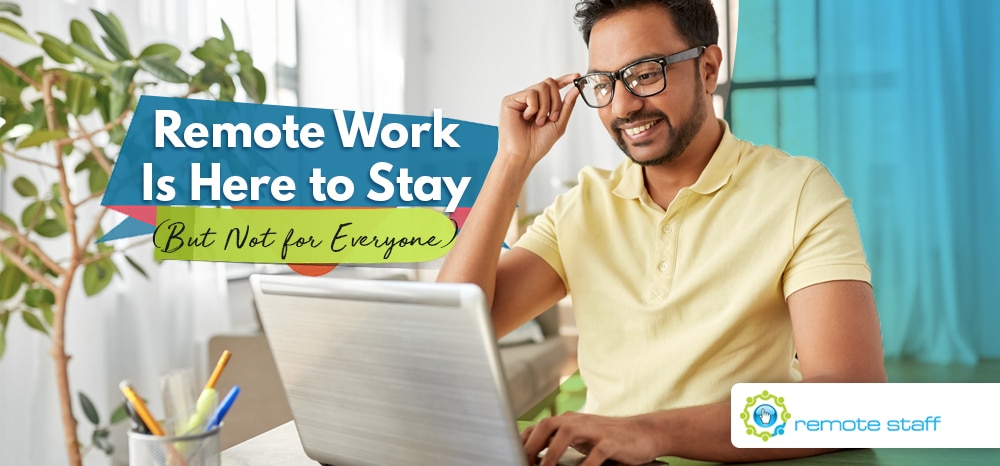Most of us have already adjusted to the WFH set-up. We get up, prepare a cup of coffee, and then clock in for work. In the new normal, you don’t need to leave the house to start the day.
But just because people can work from home doesn’t mean everyone will be allowed to. There are many industries and occupations that cannot operate without employees onsite.
While remote work is here to stay, it’s not for everyone. Work flexibility remains a privilege and a staggering 108.4 million workers hold jobs that cannot be done offsite.
So, if you’re curious about which functions can be done remotely and which ones can’t, keep reading.
Most Likely to Remain Remote: Functions That Heavily Depend on Computers But Aren’t Customer-Facing

It’s a no-brainer that the tech industry was the least affected by the shift to remote work. Even before the pandemic, thousands of software engineers and IT developers were already working from home. Their job roles aren’t customer-facing and thus, they are free to work wherever they want.
Aside from the tech industry, the business and finance sector can also function remotely on the whole. You can monitor the stock market online, for instance, and hold client meetings virtually. STEM-related occupations also allow for flexibility, particularly those that are heavily research-based.
Since people with these jobs managed to function despite the lockdown, they’re likely to stay remote even after the pandemic. Whether the ones holding them choose to go back to the office or not largely depends on their preferences.
Might Remain Partly Remote: Those That Rely On Computers and Are Customer-Facing

Technology is a tremendous help in helping us retain some normalcy and continuity. As a result, we can still work, attend class, and consult with our doctors even if we don’t leave our homes.
Those who are in health care, management, and education currently employ webinars, virtual consultations, and online events in their line of work. For example, health care officials can educate the public about the latest protocols through a webinar or online press conference. Doctors can also conduct telephone and video consultations for many of their patients.
Then, there are online classes. Professors deliver their lessons via Google Meet, Zoom, and other similar platforms.
Businessmen, meanwhile, frequently hold online video conferences to negotiate deals and partnerships, and to touch base with their employees from all over the world.
However, while technology allows people to carry out these jobs remotely, some aspects are better carried out face to face. Thus, people in these jobs can adopt a partially remote set-up once things get better.
Not Likely To Transition to a Remote Set-Up: Jobs That Neither Rely On Computers Nor Are Customer-Facing

If all jobs can be done remotely, most would definitely stay home. But alas, this isn’t the case. Some jobs simply require people to be on site. Take those in construction, maintenance, and production, for instance.
For example, engineers and architects might be able to draw up plans and blueprints remotely. Yet they will still need to oversee electricians, mechanics, and technicians onsite to ensure that things go according to plan.
Never Transitioned to a Remote Set-Up At All: Jobs That Don’t Rely On Computers But Are Customer-Facing

Health care professionals and medical front liners are modern day heroes. Given their jobs, they still had to report to hospitals to hold the line. But they aren’t the only ones who still had to go out to work just so the rest of us can stay safe and comfortable at home.
Food service and delivery crews play a huge part in the success of remote work. Online grocery shopping and food delivery became the go-to option for those who cannot leave their homes. We cannot deny the fact that staying home was possible because these workers were around to deliver essentials to our doorstep.
All occupations are important and contribute to society in various ways. As economies start to reopen, many employers are pondering whether to return to a traditional set-up or not. Several employees, however, appear inclined towards a WFH set-up.
There’s never been a better time to try out the benefits of outsourcing for yourself. Plenty of remote talents have emerged all over the world, technology has evolved to support a WFH set-up, and the concept of remote work is more comfortably familiar to most.
Remote Staff has been linking AU entrepreneurs with skilled Filipino remote workers for more than a decade now. Apart from our diverse talent pool, we also offer our experience and expertise for ensuring a harmonious working relationship between our subcontractors and clients.
Call us today or schedule a call back to start building your dream remote team.
Serena has been working remotely and writing content for the better part of the last decade. To date, she's written for Pepper.ph and Mabuhay Magazine, among others, and has churned out more than a thousand articles on everything from The Basics of Stock Market Investing to How to Make Milk Tea-Flavored Taho at home. Hermits, aspiring hermits, and non-hermits with interesting project propositions may email her at serena.estrella10@gmail.com.
























 Zero Recruitment Fee
Zero Recruitment Fee